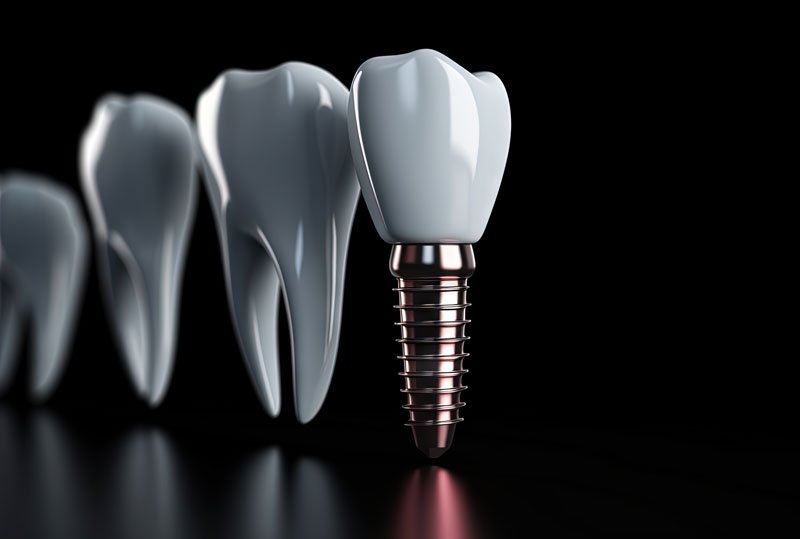Dental implants in Shawnee, KS, are a gold standard tooth replacement option. By getting treated with dental implants, patients will be able to maintain a normal diet, speak clearly, and smile confidently for years to come. While dental implants can be precisely placed with the latest techniques and technologies, there are risks that come from getting treated with dental implants.
Interested in learning what exactly the risks are to getting treated with dental implants? Continue reading to learn what the risks are to getting treated with dental implants.
What Are The Risks Of Getting Treated With Dental Implants In Shawnee, KS?
Like any medical procedure, dental implant surgery comes with its own set of potential risks and complications, though they are rare and typically manageable when they do occur. The major risks involved in dental implant surgeries include infections at the site of the dental implant, damage or injury to surrounding oral structures, nerve damage, sinus problems, and dental implant failures.
The following goes into detail about the risks of getting treated with dental implants.
Infection:
Infection can occur due to improper post-operative care or a compromised immune system. It is important for patients to follow the post dental implant placement surgery instructions carefully to minimize this risk. Damage to surrounding tooth structures is minimized with careful planning and the use of advanced imaging techniques and technologies during the placement of the dental implants, but unexpected complications can still occur.
Nerve Damage:
Nerve damage brings about the risk of a changed sensation in the gums, lips, tongue, and chin area, which could be temporary or permanent. The dental practice’s dental implant placement experience and precision are crucial in avoiding this risk. When it comes to sinus issues, preoperative evaluation is key to prevent sinus-related complications for dental implant placements in the upper jaw.
Dental Implant Failure:
Dental implant failure might result from the body’s rejection of the dental implant material, though this is exceedingly rare with modern biocompatible materials. More commonly, dental implant failure can occur due to poor osseointegration, where the dental implant post does not properly fuse with the patient’s jawbone.
Improper osseointegration can be due to several factors including poor bone quality, improper placement, or excessive stress on the dental implant before it fully heals.
See Us Now So We Can Expertly Treat You With Dental Implants In Shawnee, KS
When you come to our caring and dedicated practice, we will strategically plan the placement of your dental implants and accurately place them. Why wait to improve your smile with us? Get in contact with our doctors, Dr. Michael Dostal, and our exceptional team at our dental office to schedule an appointment today!


